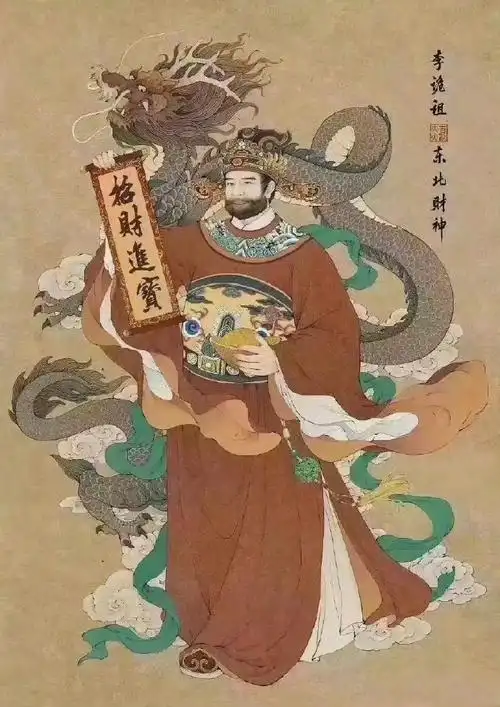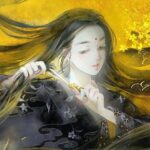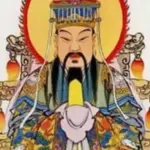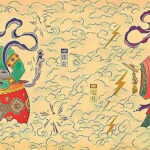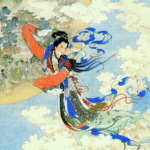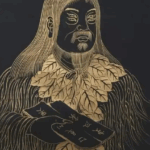In Chinese Taoism, the God of Wealth is the deity responsible for managing worldly wealth. In Chinese folk customs, New Year’s Eve is the most lively day of the Spring Festival. On this night, people eat dumplings and stay awake throughout the night, waiting to welcome the God of Wealth. Some even send the God of Wealth to their homes, and on the second day of the lunar new year, they perform rituals to honor him. Nowadays, the most popular time to welcome the God of Wealth is on the fifth day of the first lunar month. The God of Wealth is worshiped in two forms: the Civil God of Wealth and the Military God of Wealth. The Military Gods include figures like Zhao Gongming and Guan Gong, while the Civil Gods include Bi Gan and Fan Li. Additionally, people also believe in other Gods of Wealth, such as the Five Saints, Chai Rong, Cai Gong and Cai Mu, the Hehe Erxian, Li Shi Xian Guan, Wen Chang Di Jun, and the Living God of Wealth, Shen Wansan. Among these, the beliefs surrounding the Civil and Military Gods of Wealth, as well as the Five Saints, are the most widespread.
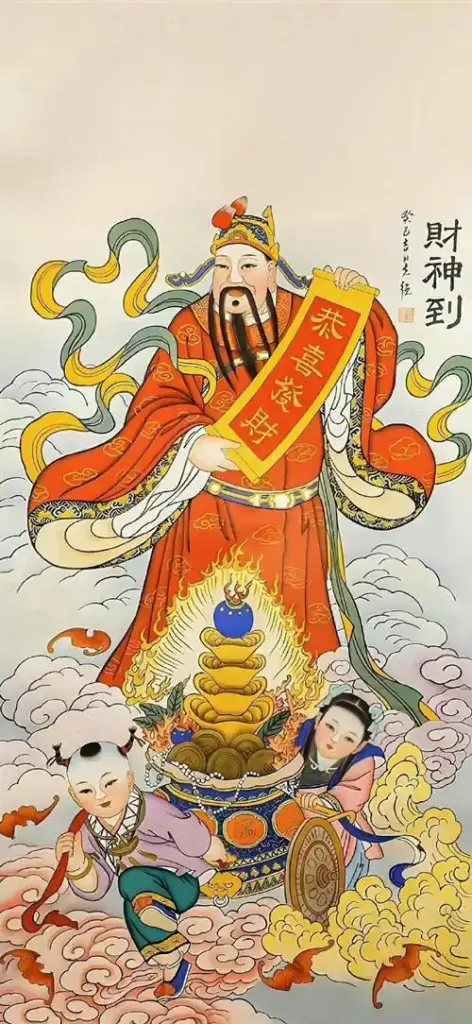
In Chinese mythology, Caishen (財神) is revered as the god of wealth and prosperity. He is venerated in both Taoism and Chinese folklore, with particular reverence during the Chinese New Year festivities, when people eagerly anticipate his blessings for a prosperous year ahead. In artistic depictions, Caishen is often surrounded by an entourage of attendants who carry symbols of wealth—gold ingots, fruits, and various treasures—and is frequently shown riding a majestic black tiger. One might even liken Caishen to an early alchemist, for he possesses a mystical artifact capable of transforming common stone and iron into gold.
Etymology
Caishen’s name is composed of two characters: cái (財), meaning “wealth” or “money,” and shén (神), which translates to “god.” Thus, his title can be understood as the “God of Wealth.”
Mythology
According to legend, Caishen rode a black tiger and wielded a golden cudgel capable of transmuting iron into gold. Over the centuries, he is believed to have incarnated as several historical figures. Taking the guise of key political and military leaders, Caishen used his vast wealth to further political ambitions.
One of the most renowned historical figures associated with Caishen is Bi Gan. In these tales, Bi Gan had a wife named Chen and a son, Quan. Bi Gan’s wife was also the aunt of King Zhou of the Shang Dynasty, a ruler driven by insatiable greed. His ambition led him to clash with Bi Gan, ultimately ordering his execution. While Bi Gan’s wife and son escaped into the forest, Bi Gan met a tragic fate at the hands of his ruthless nephew. However, the death of Bi Gan marked the beginning of King Zhou’s downfall. The Shang Dynasty soon crumbled, its power destroyed by the greed of its ruler.
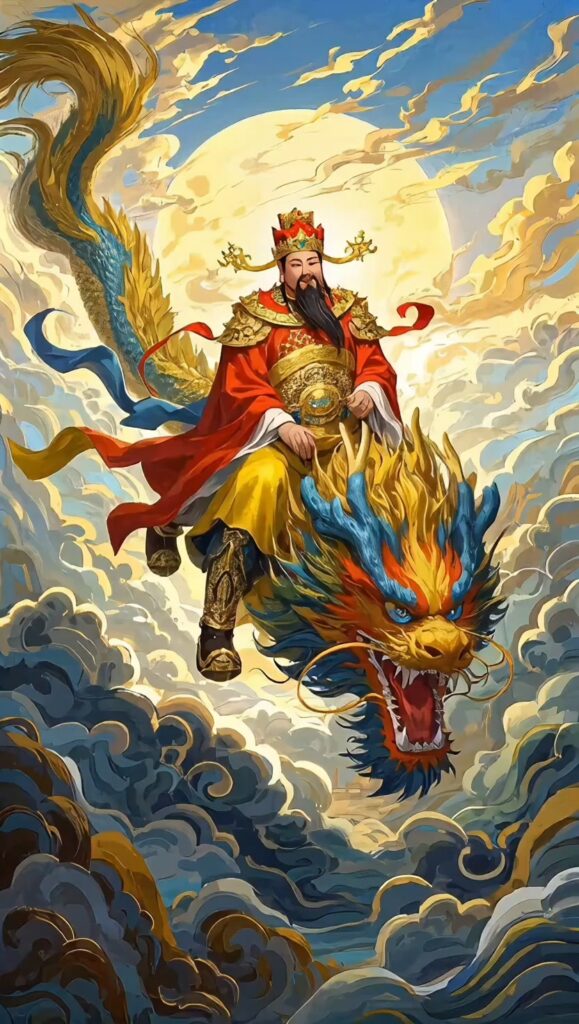
Various versions of Caishen’s incarnations and their political affiliations circulate, but the historical accuracy of these figures remains uncertain. Most accounts suggest that Caishen’s most prominent manifestation lived during the early Qin Dynasty, likely representing a fusion of several distinct legends, with the tale of Bi Gan being the oldest.
It is said that after Bi Gan’s death, his wife and son fled to the wilderness, and his passing signified the collapse of the Shang dynasty. Later, Bi Gan’s son, Quan, was honored as the ancestor of the Linsby clan by King Wu of Zhou.
In addition to the aforementioned legend, another figure associated with the title of God of Wealth is Caibo Xingjun (財帛星君), widely known in Chinese communities. Li Guizu (李詭祖), born in the Zichuan District of Shandong Province, served as a magistrate and made significant contributions to his district. Following his death, the people of the region erected a temple in his honor. The Tang Dynasty’s Wude Emperor posthumously conferred upon him the title of Caibo Xingjun, further solidifying his place in the pantheon of Chinese deities.

